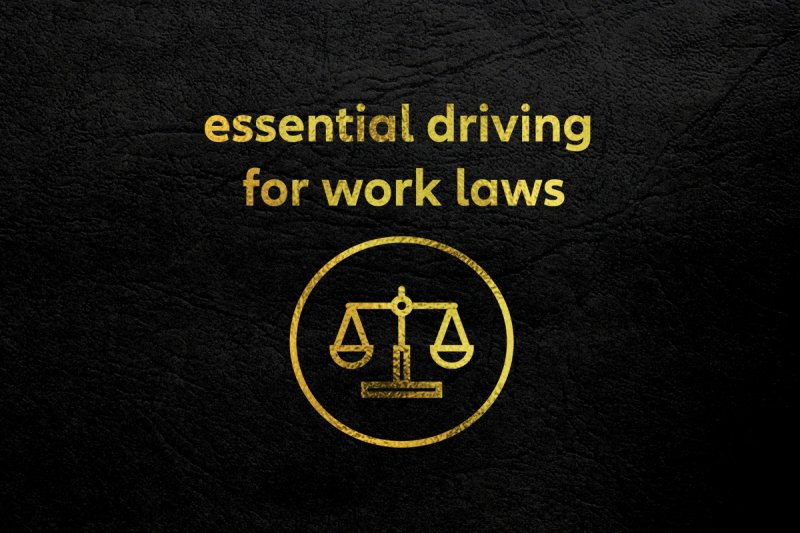There are four essential driving for work laws within the UK which contain requirements for both employers and employees involved with driving for work policy. The UK Health and Safety Executive are responsible for enforcing legislation which relates to health and safety in the workplace, which includes driving at work. The police are responsible for enforcing the punishment if an incident occurs on the roads. Therefore, as an employer who hires employees to drive at work, you could be susceptible to prosecution by the police if an incident occurs on the roads following a lack of risk assessment. It is essential for employers and employees to have a well-formed knowledge of the driving for work laws in the UK.
The Health and Safety at Work Act 1974
The Health and Safety Executive (HSE) in the UK are responsible for enforcing this law amongst UK employers, because it relates to health and safety in the workplace. This Act states that an employer has a ‘duty of care’ towards its employees. Thus, an employer must ensure their employees are safe whilst driving on the roads. This safety can be ensured by providing driving at work training, maintenance of vehicles and safe journey routes organised by the employer.

The Road Traffic Act 1988
This Act is enforced by the police, because they are responsible for investigating any incidents which occur on the roads in the UK. The Act requires employers and employees to have a sound understanding of the UK Highway Code and have all the relevant certifications to drive. If this Act is not complied with, for example if an employee is caught excessively speeding thus potentially harming those around them, the police will be the body responsible for investigating the incident. Lack of compliance with the Road Traffic Act 1988 could have serious consequences.
The Workplace Health, Safety and Welfare Regulations 1992
These regulations refer to journeys conducted whilst driving for work. Employers and employees must work together to construct safe, effective journeys to be taken whilst driving at work.
The Management of Health and Safety at Work Regulations 1999
The HSE are responsible for enforcing these regulations and ensuring that UK organisations are remaining compliant with the requirements stated. These regulations require that Risk Assessments must be carried out in the workplace, including when driving at work. Risk assessments for driving at work can include: assessing whether the employees are suitable to drive, whether the employer has provided suitable vehicles and whether the employer has created a safe journey to take, free from unnecessary risks.
What happens when UK employers or employees do not comply with the driving for work laws?
Potentially, employers and employees could face prosecution by both the police and HSE for not complying with driving for work laws, especially if a road traffic incident occurs. This means that the organisation could potentially face fines, reputational damage, and individual prosecutions which could result in imprisonment.
In August 2018 a driver for Eddie Stobart was involved in a road traffic incident in which a pedestrian in his 60s was hit by the Eddie Stobart vehicle in Birmingham. A spokesperson for Eddie Stobart noted that they were supporting the police authorities investigating the situation and were working closely with them to help aid the situation. This altercation brought negative media attention to Eddie Stobart, but it was the employee responsible for hitting a pedestrian who was subsequently prosecuted.
Employers and employees must work together to comply with driving for work laws in order to avoid prosecution by the HSE or the police. To ensure driving for work laws are always complied with, training is essential.















